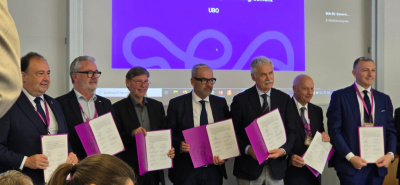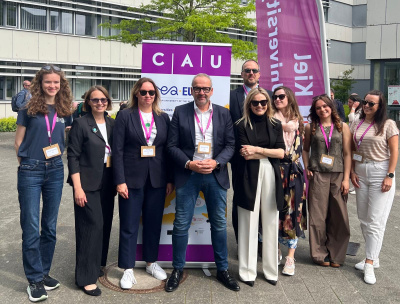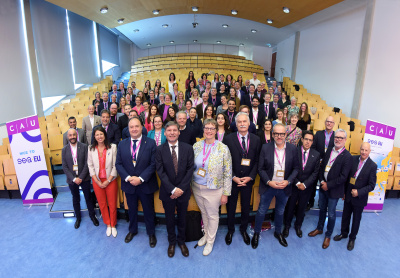
During the SEA-EU Governing Board meeting in Kiel, key decisions were made regarding the future of our alliance of coastal universities. They are guided by a single vision: SEA-EU is becoming a true European inter-university campus of the future, offering innovative study programmes, conducting ambitious research projects and establishing cooperation with global stakeholders. On 5 June, the continuation of SEA-EU was sealed once and for all!
The Rectors of the coastal universities signed a memorandum in which they officially commit to creating a legal basis for SEA-EU. This decision lays the foundation for the continuation of the partnership within the European Universities Initiative programme, regardless of funding from the European Commission after 2027.
In addition, key documents on common directions were also signed, including a cooperation agreement on STORM studies and scholarship agreements for the best candidates for SeaBluE and MIPMAL. These are interdisciplinary and mobility-based study programmes tailored to the needs of the labour market in maritime-related industries, ranging from port management and the blue economy to oceanographic research. The first students will start their studies this academic year!
An alliance worth Europe

UG delegation at Governing Week in Kiel
The Governing Board meeting in Kiel was the first meeting of the Rectors of maritime universities after the positive assessment of our partnership in the SEA-EU 2.0 mid-term report. After more than two years of implementation of the second edition and five years of SEA-EU as a whole, it was an ideal opportunity to summarise the joint activities of the nine universities.
The partnership of nine universities offers four innovative study programmes, conducts ambitious research projects, including those with a leading role for the University of Gdańsk, such as two international research cruises on the University's r/v Oceanograf, and has provided thousands of mobility opportunities for students and university staff. As part of SEA-EU, over 100 integration, cultural and sporting events have already been organised and cooperation with 30 global academic institutions has been established.
‘Over the past few years, we have created an amazing space for European cooperation with the University of Gdańsk playing a leading role in many areas,’ said UG Rector prof. dr hab. Piotr Stepnowski.
SEA-EU 3.0 on the horizon

SEA-EU community group photo
The meeting also marked the beginning of preparations for SEA-EU 3.0. The rectors agreed on the main priorities for the next stage of the alliance's development, such as incorporating joint research in priority areas, increasing mobility and micro-credentials, and involving more faculties and academic staff. The first progress in the development of the Joint Research Office and the Research Connect platform was also discussed, and a new Mobility Credit Transfer System (MCTS) programme was presented, which will facilitate the recognition of mobility within the partnership for students and staff.
